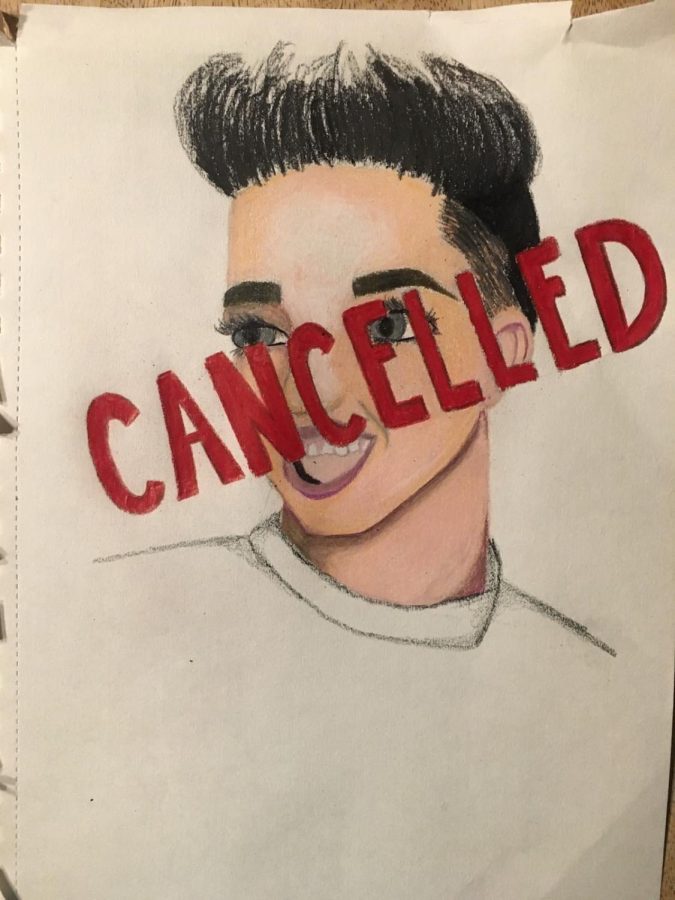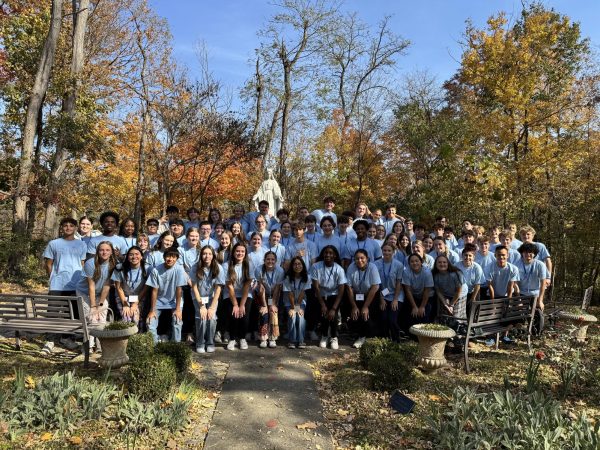Cancel with compassion
Holding influencers accountable is most effective when the end goal is growth
Photo by Kylie Perkins
SAYONARA SISTER: This drawing depicts James Charles, a famous internet personality who was “cancelled” in May of 2019, setting into motion a new social trend. “Cancel culture” now floods the media as the internet starts holding celebrities accountable.
Cancel culture is a current internet phenomenon that involves the attempt to take away the career of someone accused of questionable actions. Despite its intent to bring attention to wrongdoing by celebrities and other influencers, the complexity of such a practice has not only taken away its original purpose, but has brought to light deeper issues concerning social media.
Famous creators on platforms such as Youtube will often be targets of said “cancelling.” If these influencers are to make any mistake, presently or in previous years, mobs of people will take to the internet to critique them. Regardless of whether these creators gave context or apologized for their actions, they are subject to great amounts of hate and even death threats.
To make matters worse, not all of these accusations are true. Most people will not look into a situation to learn the facts; it’s easier to jump on the bandwagon and avoid getting attacks directed toward oneself. For the most part, cancel culture is successful in getting people’s attention and reminding us of what will not be tolerated. However, it can wrongfully label people as ‘bad,’ even if there isn’t much to back this up.
The greatest setback to cancel culture is lack of empathy. In a Youtube video by Jubilee, those who argued for cancel culture emphasized ‘compassion.’ Ben, a junior in Providence, R.I. included in a New York Times article said that cancel culture “takes away the option for [influencers] to learn from their mistakes” when burdened with the labels and permanent hatred from the public.
So where did all of this cancelling come from? A great rise in popularity for cancelling celebrities sprung from the 2019 James Charles scandal which caused many creators to give their opinions on the situation. This controversy sparked a revolutionary means of holding celebrities accountable and has attempted to combat immoral ideologies of all kinds.
While cancel culture is in some cases a long overdue measure of giving celebrities the consequences they deserve, the response by the internet has not always been the greatest one. ‘Accountability culture,’ however, accounts for the complexity of the human person and their ability to grow from the situation. If done correctly and compassionately, accountability culture can do a better job of trying to keep public figures in check.






